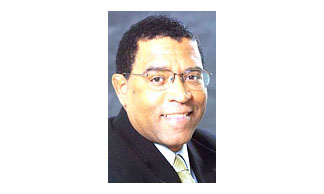
OPINION
BY DAVE PRICE
Daily Post Editor
Tomorrow (Aug. 2) will mark the 15th anniversary of the murder of journalist Chauncey Bailey in Oakland.
Bailey, 57, was shot and killed in broad daylight on 14th Street to stop him from reporting about a crime syndicate headed by Yusuf Bey IV, leader of Your Black Muslim Bakery who had terrorized Oakland for many years. Bey and two associates were convicted of ordering Bailey’s murder.
On the morning of Aug. 2, 2007, a gunman later identified as Devaughndre Broussard of San Francisco waited in a white van for Bailey to make his regular walk to work along 14th Street. Broussard and a cohort, Antoine Mackey, had been hunting down Bailey for the past two days on the orders of Bey.
Broussard, wearing a ski mask and dark clothing, jumped out of the van with a shotgun.
A witness said Bailey told the gunman, “Please don’t kill me.”
But Broussard’s first shot was to Bailey’s head, then to his chest and finally his head again, perhaps to make sure he was dead.
Four years later, in 2011, a jury convicted Bey, Broussard and Mackey.
I’m writing about this today because I don’t think the legacy of Bailey and his reporting should be forgotten. Bailey was the first journalist killed in the U.S. since 1976 when mobsters killed Don Bolles of The Arizona Republic with a car bomb.
I got upset a few years ago when another Mid-Peninsula newspaper tweeted that they would be observing a minute of silence in their newsroom to remember the five employees of an Annapolis, Md., newspaper who were killed in a mass shooting. I agree that the five employees should be remembered, but I wondered if that local newspaper had ever done anything to memorialize the legacy of Bailey. Probably not.
Bailey, who had worked at a number of newspapers and TV stations over the years, was an editor at the Oakland Post when he was assassinated. (No relation to this newspaper.)
Bailey was a rarity among journalists. Too many reporters are content to regurgitate a press release from a government agency or big business, never asking any serious questions.
Bailey, on the other hand, knew his community, and he was a reporter they trusted. So when people started talking about Yusuf Bey IV terrorizing their community, they went to Bailey with their concerns. They knew he would ask the tough questions and push hard for answers. The power of the press to expose criminal activity can go a long way toward improving a community. Even if it takes some bravery by the reporter.
His legacy should be remembered every Aug. 2.
Editor Dave Price’s column appears on Mondays. His email address is [email protected].

Thank you for remembering my brother
Very kind. But please know that although Tom Peele, Bob Butler, Mary Fricker and I might’ve been the core reporters, the Chauncey Bailey Project included the contributions of dozens more print and broadcast journalists, as the website indicates.
Chauncey was my friend and a onetime colleague. Thank you for never forgetting.